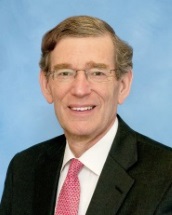
Richard L. Prager, MD, President
STS News, Spring 2017 -- At our Annual Meeting in Houston this past January, I was humbled by my election as the Society’s 53rd President. This unique Society formed as thoracic surgery was recognized as a “highly specialized discipline which should demand ones’ entire energy and attention” and, as such, “dignifies and justifies the creation of a society for thoracic surgeons.” These comments were from a letter by J. Maxwell Chamberlain, Chairman of the Steering Committee tasked with creating The Society of Thoracic Surgeons, that was sent to all prospective members.
With this foundation, STS since 1964 has had a vision that was reiterated in our strategic plan adopted last year: “improving the lives of patients with cardiothoracic diseases.” As our specialty evolved, so did The Society of Thoracic Surgeons, placing itself at the forefront of quality, innovation, professionalism, inclusiveness, and teamwork. As all of the leaders who have come before me advanced our Society, it is my goal, as well, that we will continue to make advances based on our core values and focus on our objectives.
Focusing on these overarching goals and objectives, which were developed by STS leadership during a strategic planning process, and following the established momentum of our Society, in the arena of leading innovation and education we recently held meetings on ECMO in Tampa and on robotic cardiac surgery in Chicago. The STS/EACTS cardiac surgery meeting in Latin America is coming to fruition in Cartagena, Colombia this September; it will focus on valvular, ischemic, and thoracic aortic diseases, as well as new technologies. We also will continue the FACTS-Care tradition by offering the 14th Annual Multidisciplinary Cardiovascular and Thoracic Critical Care Conference in October in Washington, DC.
Recognizing the importance of fostering collaboration and connection, STS is working to facilitate a relationship with health care analytics company Avant-garde that would offer—without charge and at the request of Adult Cardiac Surgery Database (ACSD) participants—hospital payment data on six coronary artery bypass DRGs. This service is meant to help us further our understanding of cost-payment relationships and the value of our role as leaders in creating and facilitating efficient and appropriate care.
On the cover of this issue, you’ll find results of an important survey that we conducted in 2016 on cardiothoracic surgeon involvement in transcatheter aortic valve replacement (TAVR). The results were very exciting for two reasons. First, they showed that surgeons are involved in all aspects of patient care during TAVR procedures. Second, they showed that the relationship between surgeons and cardiologists on the heart team is very strong. In fact, the multidisciplinary team approach to TAVR is working so well that the heart team concept is now being tested in other areas of structural heart disease. When we make decisions together and work well together, our patients benefit.
We are piloting patient reported outcomes in adult cardiac surgery, which is of major importance to patients, payers, and all of us.
The relationships with our sister organizations throughout the world are also critically important. STS surgeon leaders will continue to be active attendees at meetings of our colleagues’ organizations throughout the world and discuss further opportunities for collaboration and broad member engagement throughout all of these societies.
Intermacs is a further example of collaboration and connection. STS, The University of Alabama at Birmingham, and NHLBI are concluding discussions aimed at facilitating Intermacs becoming an addition to the Adult Cardiac, Congenital Heart, and General Thoracic Surgery Databases that are a part of the STS National Database.
We continue to be a leader in the quality arena, anticipating a July 1 rollout of Version 2.9 of the ACSD with expanded aortic data fields, as well as further upgrades. We are also initiating trial sites for an online dashboard and have already started offering daily input of data with limited ongoing data summaries. In addition, we are piloting patient reported outcomes in adult cardiac surgery, which is of major importance to patients, payers, and all of us.
As we look to the future and its challenges and realities, STS will continue to represent all of its members and continue to advance our specialty working with you—our members—and our colleagues throughout the world.
Please feel free to contact me at my STS e-mail address, rprager@sts.org, and I look forward to seeing you at our upcoming meetings.